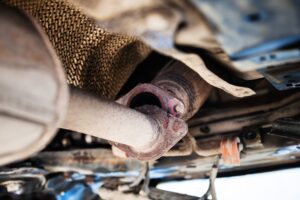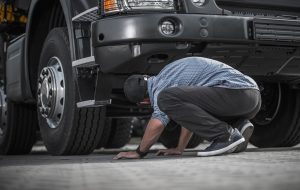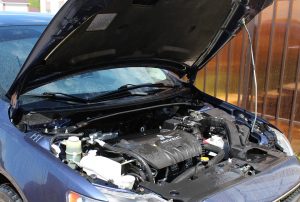As a parent, one of the most stressful things to deal with is your kid’s first car. In addition to having to deal with initial costs, you have to figure out what restrictions you need to have with your son or daughter. That doesn’t include when the inevitable accident happens. Here are some tips to help anxious parents!
It’s time for your kid to start driving! The idea of your child having this much independence is exciting and terrifying. The feeling can be overwhelming especially as you prepare your child’s first car. When buying your kid’s first car, there are a few essential things you need to take into account:
Typically, the first car for a teenager will be previously owned (used car or truck). For a used vehicle it is important to get the car inspected prior to letting your child drive it. However, getting a car is typically the second step. After all, the biggest hurdle a parent has to face is how to coach their child through their driving experience.
Driving is a privilege that requires a level of responsibility that your teenager is starting to learn. Furthermore, driving can be a complicated task. According to the University of Michigan’s Transportation Research Institute, injuries from car crashes are the leading cause of death for teenagers. Although driver’s education teaches teenagers how to drive, they need a lot of practice to drive effectively. In fact, parents should consider spending 50 hours of supervised driving time with their children to help teach them safe driving.
When teaching your child how to drive you need to have open and honest communication with them about goals and expectations. While driving, parents should:
In addition, there are plenty of ways you can help your child at the beginning of their driving journey. To be sure, one of the most important things is teaching your child about maintaining and taking care of their car or truck.
When you were young did you pay close attention to oil levels, tread on your tires, or muffler noises? I’m guessing most of you didn’t. There are plenty of checks that you can show your teenage driver how to do. However, certain maintenance task needs to be done by professionals. And when your child inevitably has their first accident, it’s important to teach them about choosing an auto repair shop. When it comes to car maintenance and repair, Mr. Muffler has been servicing parents and their kid’s cars for nearly 30 years! We treat our customers like family, just ask anyone in Westland or check our reviews on Google or FaceBook!
Now that the summer months have hit, it is time for some summer car inspections. The summertime is always busy! Vacations and road trips across the state or country are always on the table. You can even cross the border and explore Canada! Even if you do not have any grand plans, your vehicle is still subject to daily trips to work and errands. Before hitting the road, whether for a long trip or for daily commuting, you should get your car inspected. In fact, everyone should start their summer by getting their car looked at.
The summer season provides unique stressors that can affect your vehicle. Cars are constantly at risk of overheating due to the intense weather. The heat can wreak havoc on your car’s systems causing massive breakdowns. This can lead to issues like:
So, how do you avoid these issues?
Before you hit the road, there are a few ways that you can help to make sure your car is not going to break down on you.
Before you hit the road, you should check your:
Coolants
You should check your coolant levels and make sure it is clean. After all, your coolant is essential to keeping your car from overheating. Your coolant should be translucent and clear from contaminants. If it is not, you need to flush your coolant system.
Tire Pressure
The summer heat can drastically affect your car’s tire pressure. Tire pressure increases faster in the summer than in the winter. Tire air pressure increases during the summer and decreases during the winter with lower temperatures. Proper tire air pressure is important year round to the overall wear and performance of your cars tires. Avoid unnecessary wear and dangerous driving conditions by maintaining the correct air pressure in your tires.
Brakes
During the summer months, people tend to put pressure on their braking system. This causes brake discs and pads to wear down, tearing them apart. It can also cause leaks in your braking fluids line. Most brakes need to be replaced every 30,000-35,000 miles in urban use. In less demanding situations like highway driving in light traffic, brakes may last 80,000 miles or more. It is always a good idea it’s important to have your brakes and braking system inspected before taking a road trip.
Battery
Your car’s battery should always be regularly inspected. High temperatures and humidity can help to corrode your car battery and help to weaken it and prematurely end its useful life. In addition to helping to start your vehicle, your car battery has other functions that help to operate your vehicle.
Don’t feel like you can thoroughly inspect your car? Mr. Muffler can give your car a thorough 21-point inspection to make sure you’re ready to take on the summer! We offer a variety of services to maintain your vehicle like radiator flushes and oil changes! In addition to your car exhaust system and muffler maintenance, we are really known for our outstanding auto service and repair work.
Located in Westland, our mechanics work hard to satisfy our customers. Please avoid the hassle this summer and come to our local auto repair shop today! Finally, be sure to join us on Facebook today.
 The dangers and damage from vehicle exhaust leaks cannot be understated. Some of them may be obvious, however, there may be some that you have not considered. While most know that the fumes can be very harmful, less obvious may be the damage that an exhaust leak can do to your vehicle. This article covers a bit of both.
The dangers and damage from vehicle exhaust leaks cannot be understated. Some of them may be obvious, however, there may be some that you have not considered. While most know that the fumes can be very harmful, less obvious may be the damage that an exhaust leak can do to your vehicle. This article covers a bit of both.
Most people are concerned about protecting the environment. Car exhaust is a significant contributor to air pollution, releasing greenhouse gases and pollutants that harm the environment. Although there have been many improvements over the years, Gas or Diesel powered vehicles still have a significant impact. In that regard, these pollutants contribute to smog formation, damage vegetation, and can have long-term effects on ecosystems. By fixing exhaust leaks and reducing emissions, individuals can help minimize their impact on the environment.
It is important to address any car exhaust leaks promptly. If you suspect a leak, it is recommended to have your vehicle inspected by a qualified mechanic and your vehicle repaired as necessary to ensure your safety and the well-being of others.
Exhaust system leaks can cause damage to a vehicle in several ways:
The exhaust system plays a crucial role in the proper functioning of the engine. Leaks in the exhaust system can disrupt the backpressure balance required for optimal engine performance. This can result in reduced power, decreased fuel efficiency, and poor acceleration. In addition, the heat from an exhaust system, particularly in the engine compartment can lead to the escape of hot gases near the engine components. Over time, this can cause overheating of surrounding parts, including wiring, hoses, and nearby components. Excessive heat can lead to the deterioration of these components, leading to malfunctions or even engine damage.
O2 Sensor Malfunction: The oxygen (O2) sensors in the exhaust system are responsible for measuring the oxygen content in the exhaust gases. If there is an exhaust leak upstream of the O2 sensors, it can introduce false air into the system, leading to inaccurate readings. As a result, you may have poor fuel economy, rough idling, and even trigger the check engine light.
Damage to Exhaust Components: Exhaust leaks can cause corrosion and damage to various components of the exhaust system, including the exhaust manifold, catalytic converter, muffler, and pipes. The presence of moisture and corrosive gases in the exhaust can accelerate rust and corrosion, leading to weakened or perforated components. If left unaddressed, this can result in the need for costly repairs or replacements.
One of the noticeable signs of an exhaust system leak is increased noise and vibrations from the vehicle. When there is a leak, the exhaust gases escape before they can be properly muffled by the muffler. This can result in a loud noise both annoying to you and other drivers. In addition, some cities issue tickets for noise pollution. However, the whistling from an exhaust leak is another tell tail sign of a leak that if not a problem immediately will be very soon.
As we mentioned; it is important to address exhaust system leaks promptly to prevent further damage to the vehicle and ensure optimal performance and safety. If you suspect an exhaust leak or simply want a thorough inspection to make sure your car is operating at peak performance levels CONTACT MR MUFFLER TODAY!
Finding a shop that does heavy vehicle repairs can be a challenge. Let alone finding an auto shop that is willing to do repairs for a decent price. Mr. Muffler repairs customers’ vehicles every single day. However, you might be wondering what heavy vehicles we are willing to work with. So, let’s discuss heavy vehicles and what type of auto repair services our shop covers!

A heavy vehicle is defined as a vehicle weighing five tons or greater. Another qualification for this automobile is having a minimum of three wheels and a maximum permissible load exceeding 3.5 tons. A few automobiles that fit this category include:
As you can tell, there is a wide variety of automotive vehicles that fall into the category. SUVs even fit the qualifications as they are considered ‘light trucks.’ So, does Mr. Muffler service heavy vehicles? The answer is both yes and no.
 Without a doubt, Mr. Muffler can service any type of car. However, heavy vehicles are another story. Because of their weight and height, we only do repairs on select heavy vehicles. There are only two heavy-class automobiles that were repaired, those are SUVs and Light Trucks. That means we can handle vans and pickup trucks as well. Despite our limitations with what heavy vehicles we work with, our services are not limited. If you need a tune-up or repairs, Mr. Muffler can help you! When have a comprehensive list of auto services that can get your light trucks in working condition!
Without a doubt, Mr. Muffler can service any type of car. However, heavy vehicles are another story. Because of their weight and height, we only do repairs on select heavy vehicles. There are only two heavy-class automobiles that were repaired, those are SUVs and Light Trucks. That means we can handle vans and pickup trucks as well. Despite our limitations with what heavy vehicles we work with, our services are not limited. If you need a tune-up or repairs, Mr. Muffler can help you! When have a comprehensive list of auto services that can get your light trucks in working condition!

Do you have car battery problems? Is your car failing to start up in the mornings or dim headlights? This might mean that you have a bad battery. Having a good battery is important as this is the part that starts the engine and gets the car moving. Furthermore, long-term car battery problems can lead to a bad alternator or starter which can place stress upon the engine.
Car batteries are not meant to last forever. The typical car battery only lasts three or four years. After five or six years, the battery starts to corrode and becomes completely unreliable. Fortunately, there are a few warning signs that your battery is in need of a replacement. So, let’s go over the tell-tale signs that your car needs a new battery!
The engine is slow to start, and the check engine light is on
These are the first signs of a battery in need of replacement. The battery supplies energy to the engine which allows it to start. Once the battery starts dying, the engine will take longer to obtain this energy, therefore taking more time to start.
The Dome lights, Headlights and Radio will not turn on
If the dome lights and radio do not turn on when you enter your car and the headlights are dim, this usually means that you have a dead battery. This can happen if you leave the dome lights on overnight, experience extreme weather conditions, or have an old battery that has corroded. In many cases, a jump start can charge the battery and give you some extra time before you have to take your car into the shop.
You can hear the starter when you turn the key, but the ignition will not turn over
If you turn the key and the engine will not start, this can be a battery issue. If the starter sounds labored and chugs slowly or it makes some noise then stops completely, this is a sign of a battery issue. However, if the starter sounds normal and the car still will not start, it’s most likely a fuel or spark issue.
The engine will not start
When a battery is completely dead, the car won’t start at all. You will not hear or feel the car starting when you turn the key to the ignition. If the battery dies completely, you will need a replacement as this signifies corroded wiring.
Here at Mr. Muffler, we have decades of experience in dealing with faulty car batteries and other car services. No one ever wants to have to deal with a bad battery. Fortunately, Mr. Muffler can help with your car battery problems. We can help you install a new battery and dispose of your old, deteriorated battery. Worried about the price? Right now, we are having a special on car batteries. We are offering $15 off a new battery installation. In addition, the new battery will have a three-year warranty that includes a free replacement. It is not every day that car batteries are on sale, especially with a guaranteed warranty.
So, if you are having car battery problems, come to Mr. Muffler and take advantage of our deals on car batteries and other services. Contact us today, we look forward to hearing from you!